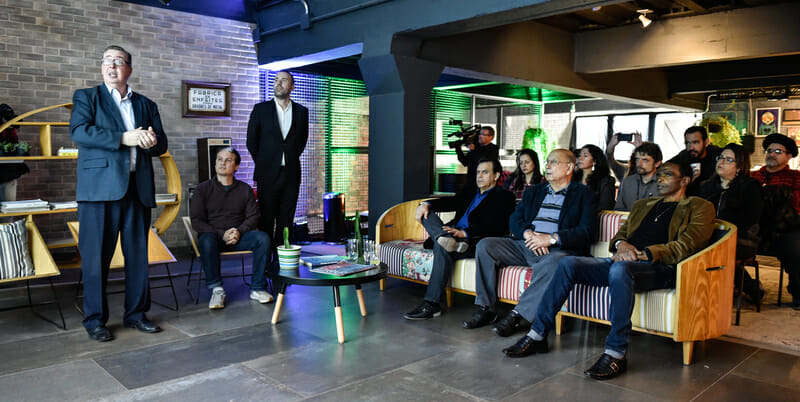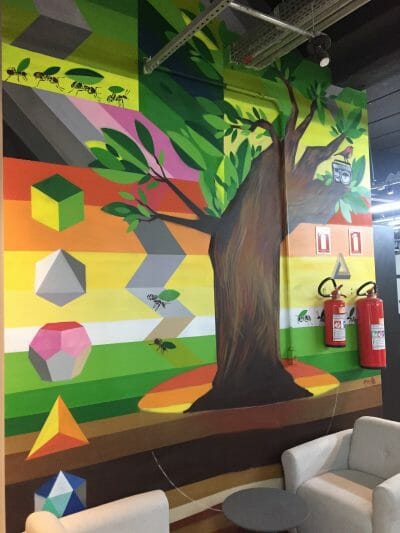
I participated recently as a keynote speaker at the 1º Tech Art Festival, an event that celebrated the opening of “Fábrica do Futuro”, an hub for innovation and creativity located in the Porto Alegre, Brazil. When there I was interviewed for the Brazilian online magazine GAUCHAZH. Below, are parts of the interview.
In recent years, the city of Porto Alegre [in Brazil] has made efforts to excel in the production of startups and companies in sector as art and culture, such as the 4th District, several technology parks and innovation ecosystems such as “Fábrica do Futuro” who invited you here to Brazil. Is this a only way road to big cities?
These are all important initiatives if any city or region is to become famous for a particular creative industry. And remember cluster policy is a long term strategy. It could take ten or fifteen years as in the case of the Nordic countries. To attract talent there needs to be a clear advantage and a buoyant ecosystem (universities, media, policy and business).

You say that a city needs to choose which creative industries to develop. How to do this analysis and the choice?
This is a good question. In my opinion, this takes an honest appraisal of what your city, region or country are really good at. In Portugal this started with a Macro-economic study to justify the existence of a Creative Industries agency to see which sectors had the biggest potential for growth — architecture, design and education software came out top — and then mapping, networking and promoting the cluster nationally and internationally.
Despite being known for creativity, Brazil still has few startups that have managed to have some world-wide projection. At what stage is the country on the world map of innovation?
Yes Brazil is a very strong brand and has some excellent heritage of course which will help as the innovation cluster is internationalised. And yes there are some success stories which is important for confidence: Those founders and their experience is very important for the local ecosystem. In fact by chance I met the Decora team in London just before they became a unicorn through my connection to the UK Department for International Trade. They were very passionate about what they were doing.
What are the main failures of digital entrepreneurs? And how important is it to learn from mistakes and try to start a business again?
The main failures I see are not doing sufficient research and trying to reinvent something that already exists. There is sometimes a lack of mission too: What do you do, how do you do it and who for? That sentence becomes the bedrock for your business. It is also your elevator pitch in case an investor Warren Buffett gets into your lift at an event! Failure is fine so long as you fail early. (Please do not fail on a manned space trip!). Yes it is important to get back up once you get knocked down. Doing that as a team is not so easy as it sounds!
Full article in Brazil here: guru-da-criatividade-indica-o-caminho-para-porto-alegre-se-tornar-um-polo-tecnologico

He was also the founder ceo of the Creative Industries Portugal cluster for the Ministry of Economy and Regional Development agency for the North of Portugal.
In addition Michael is a mentor of Crypto Valley Labs, Switzerland, MIT Portugal, Start Up Lisboa, The Lisbon Challenge and a founder jury member of the European Commission @Diversity Culture Technology competition.
In the past Michael has worked on projects with many major brands and institutions including PlayStation, Nike, X Box, MTV, Diageo, Cockspur Rum, Interbrew, BMW, Coca Cola, SONAR, Red Bull, Nokia, Vice and the ICA. He also has a significant media track record having worked for City Limits, Tank Girl, Deadline, Observer Life magazine, Art & Architecture Journal and Labkultur.TV.











